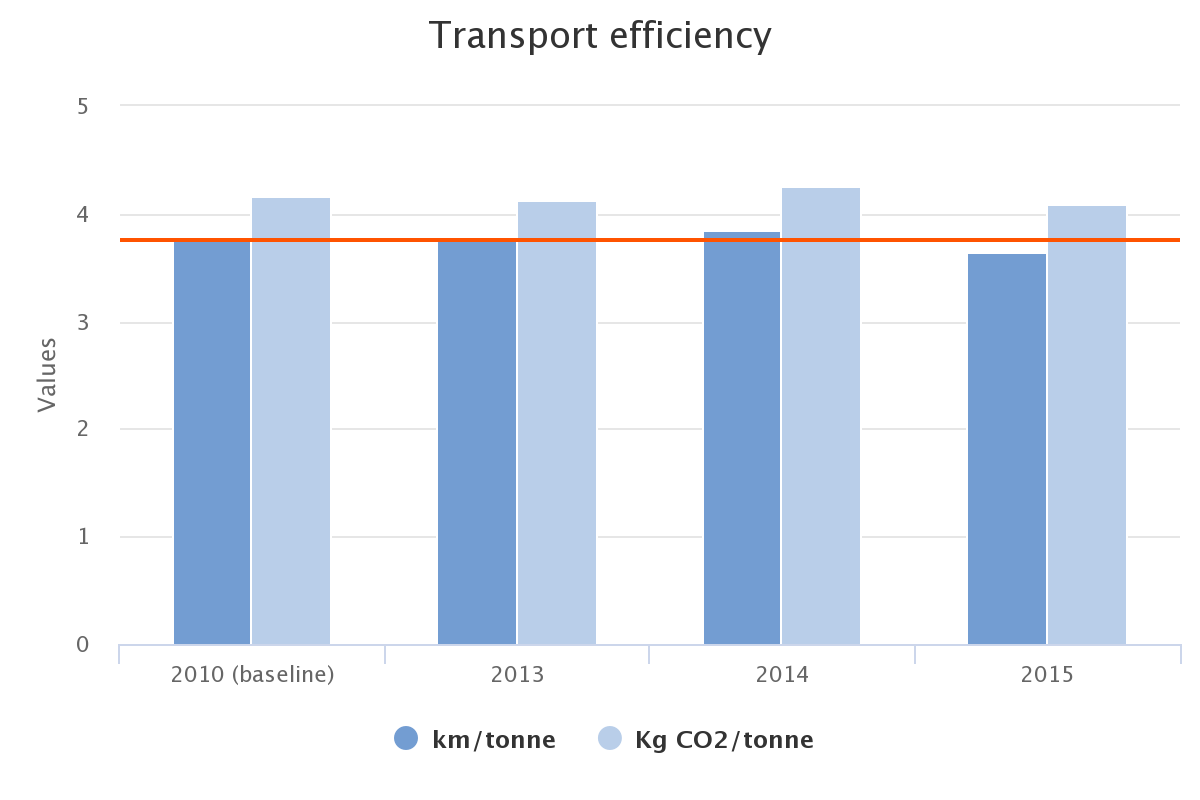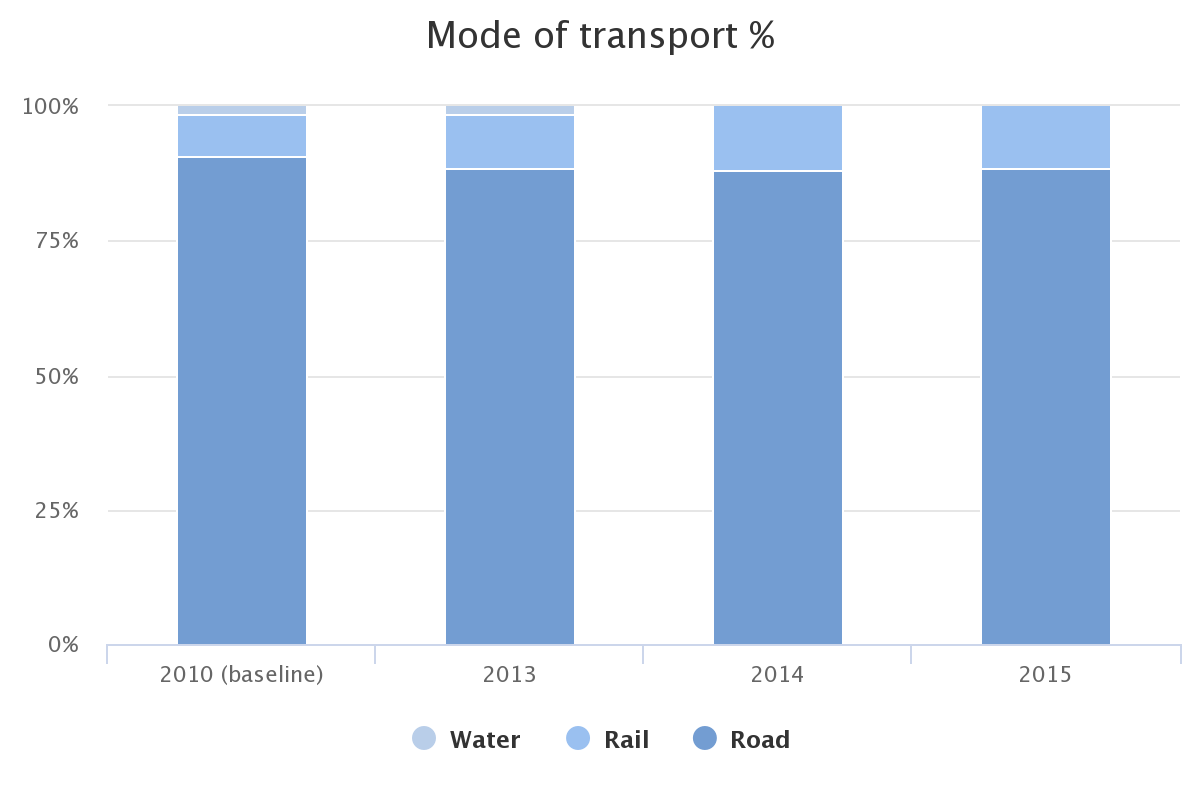CO2 emissions from transport
Improvements in vehicle scheduling
CO2 emissions from transport on a per tonne basis fell slightly during the year as a result of better vehicle scheduling. We also had a higher percentage of our own vehicles meaning we could track fuel use more accurately and provide fuel efficiency training for all our drivers. Rail deliveries increased slightly for aggregates but cement was static.
A project to optimise order handling and vehicle scheduling in the aggregates, asphalt and concrete business lines is ongoing. The aim is to improve vehicle use and reduce fuel costs. The project is focused on the effective and efficient use of our delivery fleet through the introduction of vehicle optimisation software, GPS and a material resource planner (MRP) to schedule internal deliveries.

-
CO2 emissions from transport
Transport efficiency
2010 (baseline)
2013
2014
2015
Tonnes delivered
29,529,302
26,354,963
27,212,523
28,473,246
kg CO2 / tonne
4.16
4.13
4.25
4.09
Total distance travelled km
111,677,281
98,793,441
104,436,393
103,660,621
Tonnes CO2 / year
122,934
108,824
115,602
116,397

-
Mode of transport
Mode of transport
2010 (baseline)
2013
2014
2015
Road
90.78
88.65
87.75
86.55 Rail
7.91
10.02
11.76
11.45 Water
1.31
1.33
0.5
2.0
Rail wagons on track

A fleet of 19 new cement rail tankers went into service during the year. The VTG Rail wagons were built by Feldbinder in Wittenberg, Germany, and are being used for cement deliveries from the Ribblesdale works in Clitheroe to Bellshill depot in Glasgow, and Avonmouth depot near Bristol. We also move cement by rail from Ketton to a depot at Kings Cross in central London.
The net effect was to increase train carrying cement capacity from 1,050 tonnes to 1,400 tonnes on all three rail routes.
Moving floor trucks eliminate tipping
The latest addition to the Hanson transport fleet is an articulated trailer that doesn’t tip. The load is discharged by a series of sweeping rams which push the material out of the truck. All the traditional risks for associated with tipping articulated trucks - high winds, uneven ground or overhead trees and cables – are eliminated. And the trailers are perfect for sites in tunnels or underpasses. Read more

